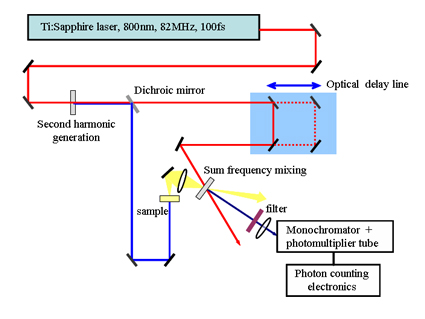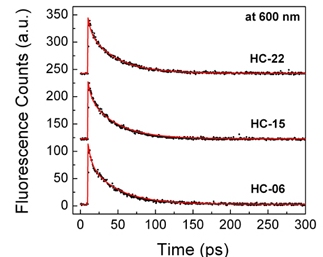Fluorescence Upconversion
From SMOSwiki
Fluorescence upconversion system is the instrument for measurements of the fluorescence decays with femtosecond time resolution. The method is based on mixing fluorescence radiation of a sample with strobe femtosecond pulse in a non-linear crystal, which produce a light pulses at sum frequency of fluorescence and strobe, and measurements of the light intensity at the sum frequency.
Principal optical scheme of the measuring system
Typically femtosecond pulses at base wavelength of laser system (w0) are used as strobe pulses. Sample is excited by the same strobe pulses or by shorter wavelength pulses created by second harmonic generator (SHG), in a later case 1/2 w0. Sample fluorescence (at wf) is collimated and directed in to the nonlinear crystal together with the strobe pulses, where light at sum frequency is produced (ws=w0+wf). The intensity of the light at sum frequency (ws) is measured by photomultiplier working in photon counting coupled with monochromator. The intensity is proportional to the fluorescence intensity at a time determined by the time of strobe pulse arrival, therefore changing delay of the strobe pulses one can determine fluorescence decay profile with time resolution roughly equal to the strobe pulse width.
Example of the fluorescence decay of the Hemicyanine (HC-n) in methanol.


